
How Havana of the East withered under state rule and palm oil's rise
A sultan lured a Dutchman to Sumatra 150 years ago to launch tobacco growing. Initially successful, the industry withered after Sukarno’s nationalisation and was eclipsed by palm oil. A museum recalls the glory days
In December 1957, Sukarno, the first president of newly independent Indonesia, expelled some 46,000 Dutch people living and working in the country and nationalised their businesses, slamming the final door shut on 350 years of colonialism in what was formerly called the Dutch East Indies.
Angry at the refusal of the Netherlands’ government to cede Papua New Guinea to Indonesia, which had been independent since 1945, Sukarno gave the Dutch one month to pack up and leave their former colony.
Fighting prejudice against Indonesia’s Chinese ... with a museum
In Medan, a commercial entrepot in North Sumatra founded on the tobacco business in the late 1860s, scores of Dutch-owned tobacco, rubber, tea and palm oil plantations were nationalised.
The tobacco industry in the Deli district, as the area around Medan was known, had been pioneered by Dutch entrepreneur Jacob Nienhuys, who moved there in 1863 after a failed tobacco plantation venture on the adjacent island of Java.
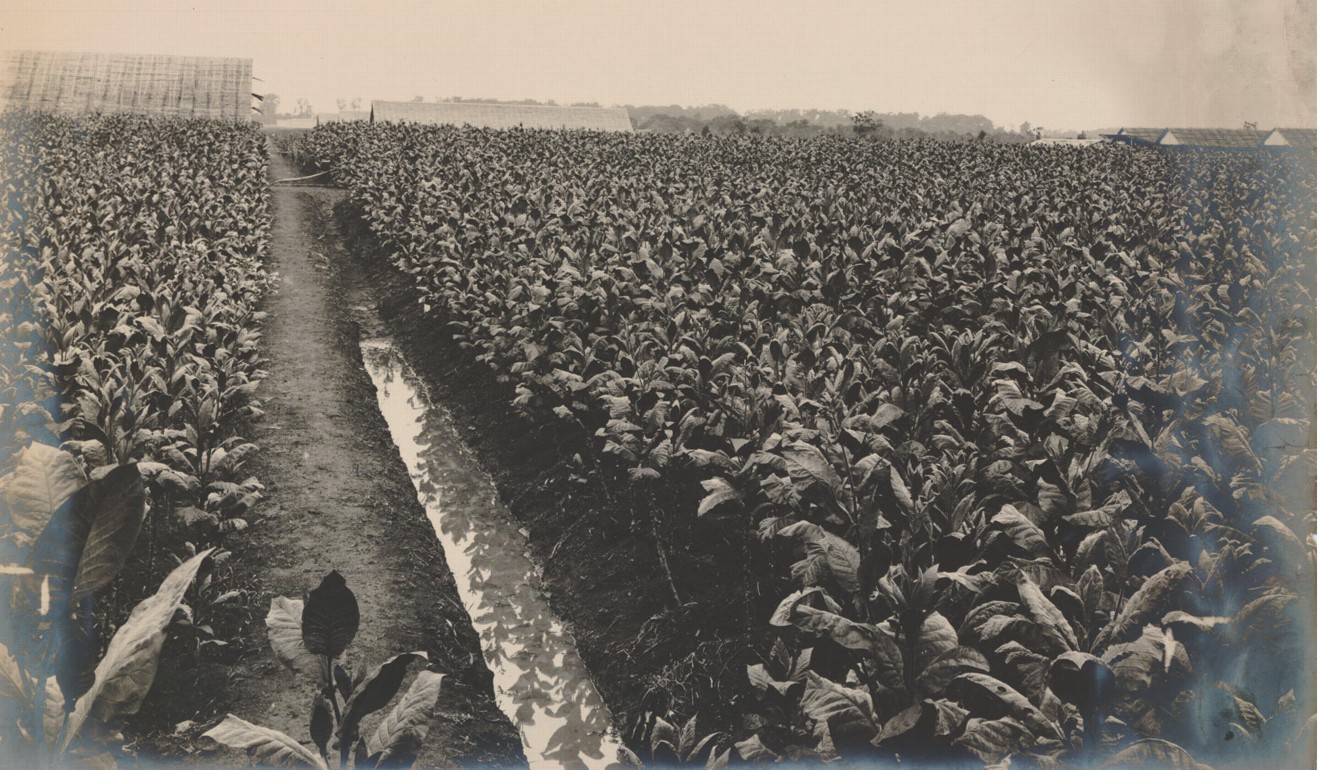
The district’s volcanic soil and climate were ideal for growing tobacco. When the Sultan of Deli granted Nienhuys a 20-year concession to harvest and buy tobacco from local residents, he returned to Holland to seek investment in a plantation from merchants in Rotterdam.
While they were impressed with the Deli tobacco leaf, all but one turned him down. The exception was Peter William Janssen (this writer’s great-great-grandfather), an Amsterdam-based grain merchant who decided to invest 30,000 guilders in the Deli venture.
In 1867 their first shipment of Deli tobacco was sent to Rotterdam. It was snapped up by cigar manufacturers, earning Nienhuys and Janssen 66,000 guilders, for a profit of 36,000 guilders, which was a huge amount at that time. The Deli leaf, used for the outer wrapper of cigars, became popular throughout Europe, where it was deemed on a par with Havana tobacco for its rich aroma.
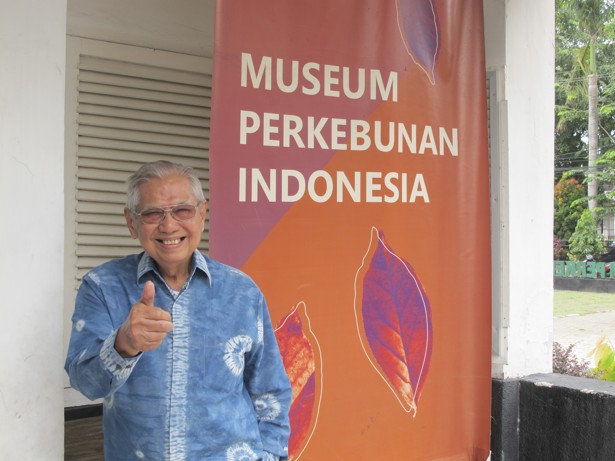
The two entrepreneurs listed the Deli Company on the Amsterdam stock market in November 1869, giving birth to what would become one of the most profitable enterprises in the Dutch East Indies.
Nienhuys was forced to flee Medan in 1871 after being indicted in a local court for beating seven Chinese labourers to death on his plantation. Back in Holland, he was retained as a member of the Deli Company’s board, and went on to amass a fortune.
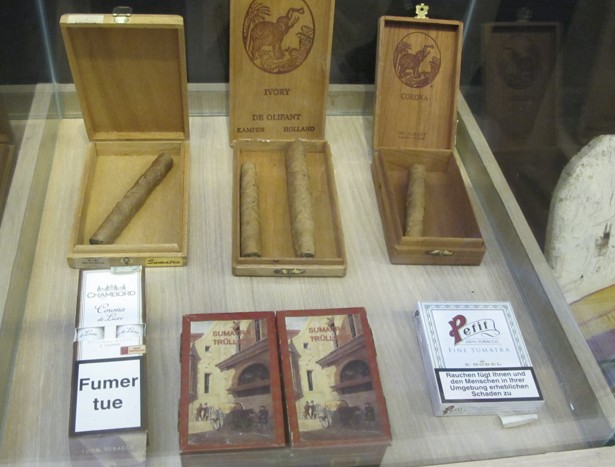
Ironically, it was another export industry pioneered in Deli that triggered the decline of tobacco growing and means it is Havana alone, and not Medan, that today is associated the world over with fine cigars. That industry was palm oil.
Dutch authorities originally planted palm oil trees around the roadsides in Medan for decoration and shade. In 1902 a process of extracting palm oil was invented in Berlin, and by 1911, using the seeds from the roadside shade trees, German and Belgian planters in Medan established the first large palm oil plantations there. The Dutch planters imitated them, also setting up a palm oil research centre, and by 1939, North Sumatra was already the leading exporter of palm oil.
We have done our utmost to present the Dutch in a good light at the museum
Malaysia, then the British colony of Malaya, was soon growing palm oil too, using Deli oil palm seeds.
Today Indonesia is the leading palm oil producer, harvesting 42 million tonnes in 2017, of which 31 million tonnes were exported.
Tobacco production declined steadily after Sukarno’s nationalisation of the plantations in 1957. Initially placed under the control of the Indonesian army, they were later transferred to PT Perkebunan Nusantara (“Plantation Archipelago”), a conglomerate of 14 state-owned enterprises operating plantations throughout the country.
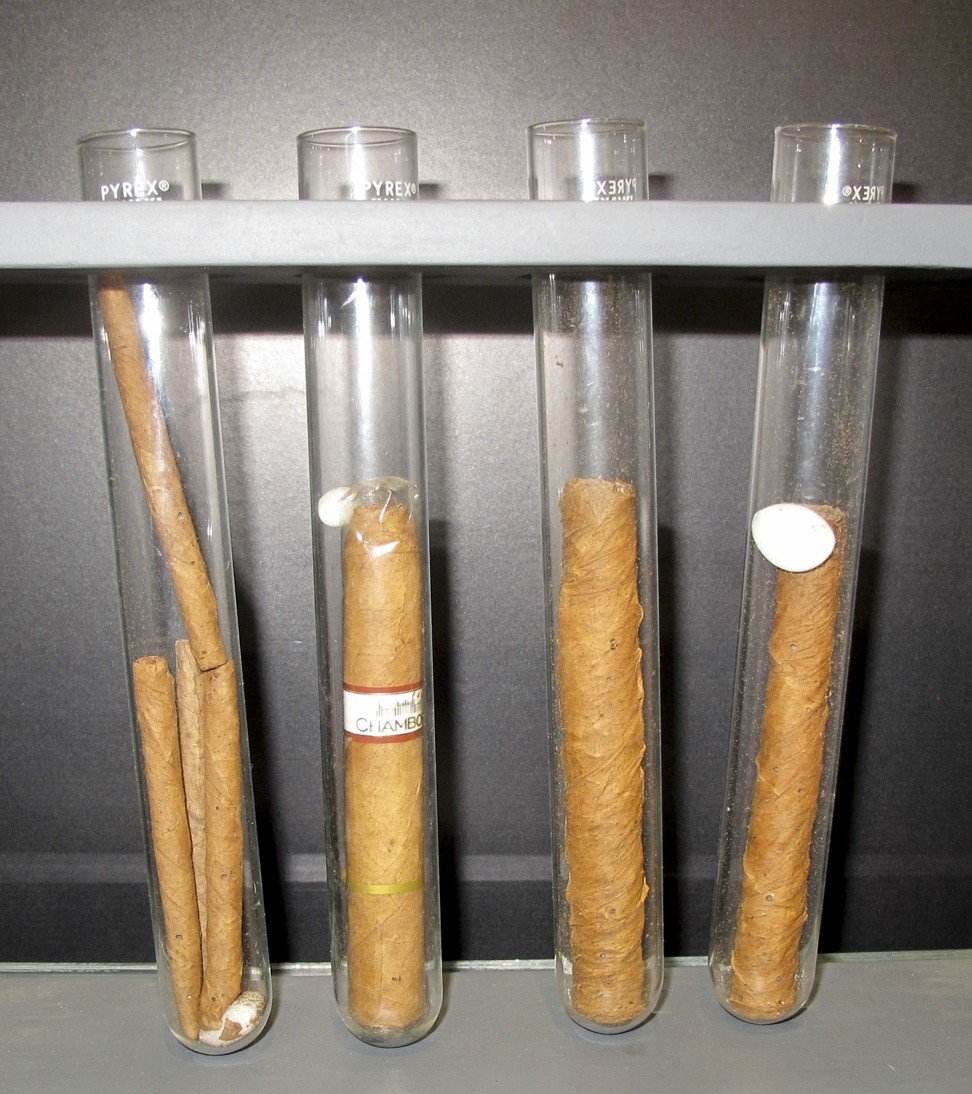
Soedjai Kartasasmita, who managed tea and rubber plantations for the state-owned Bank Industri Negara in North Sumatra between 1954 and 1957, eventually became the president of PT Perkebunan Nusantara. He worked from the conglomerate’s headquarters in Jakarta, but during his long career he never lost his emotional attachment to Medan, which he first visited in 1954.
“When I arrived in the city I fell in love with Medan. It was so beautiful at that time I decided it was a place I wanted to work,” he says.
Since retiring from PT Perkebunan Nusantara in 1988, Soedjai, who is 92, has acted as an adviser to plantations across the archipelago. He has made reviving North Sumatra’s once illustrious tobacco trade a personal goal.
The museum is to show people that in the past we were doing well. We used to be an example to the world for the best plantations because of our research and good management
“Deli tobacco was considered like Bordeaux wine. Like wine, tobacco is location-specific. Deli became rich because of tobacco,” he says.
However, since 1960, North Sumatra’s Deli tobacco shipments have declined from 45,000 bales (one bale is about 80kg/176lbs) to less than 200 bales last year. Land given over to tobacco plantations has fallen from 50,000 hectares (193 square miles) to less than 1,000 hectares today.
Soedjai’s efforts to revive the tobacco plantations in the region have failed, falling victim to palm oil, urban sprawl and land-grabbing. Instead, he has poured his energies into another passion project, the Indonesian Plantation Museum.
It has partially fulfilled his dream of preserving the past glories of the two cash crops that made North Sumatra famous at different times.
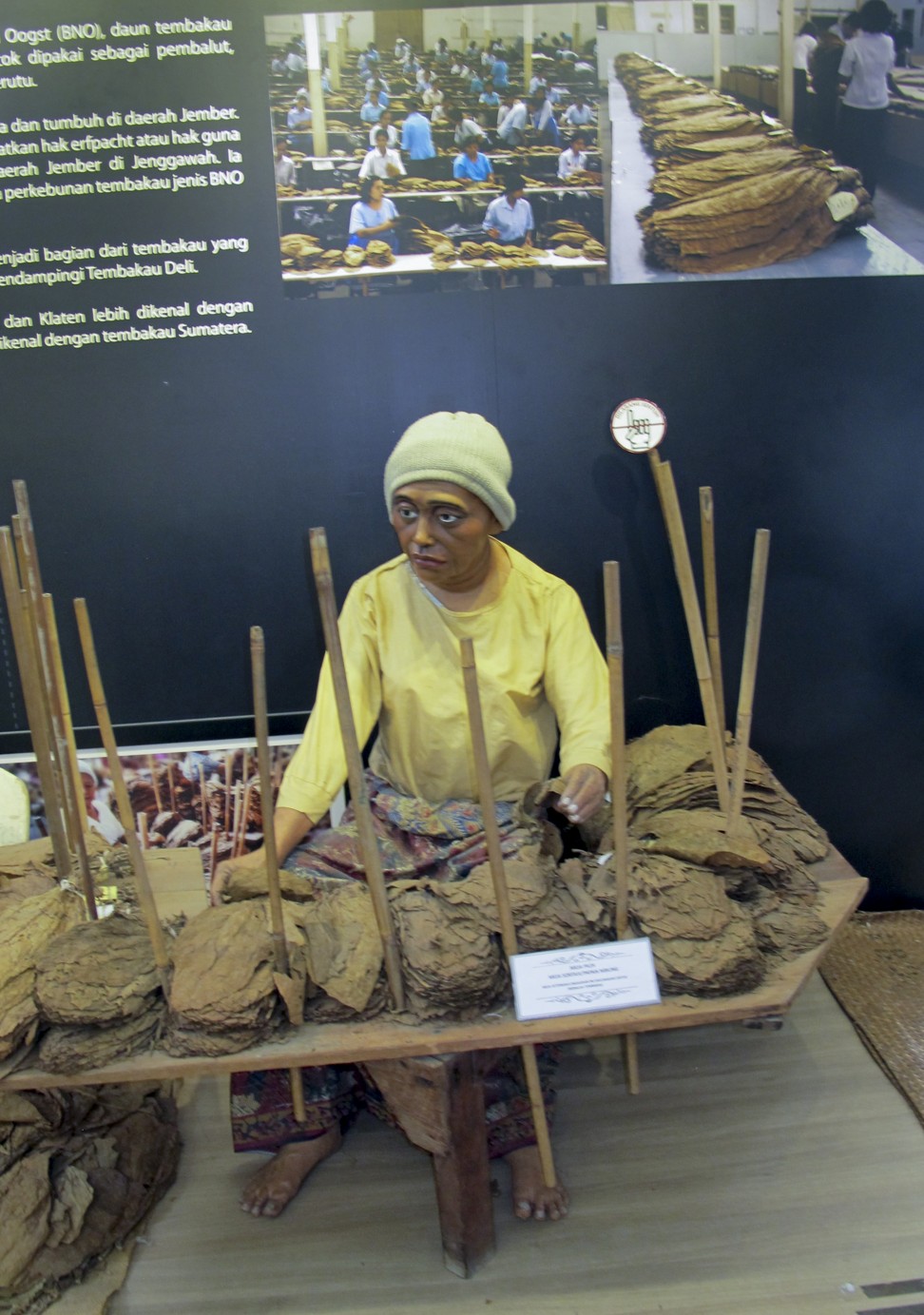
He hopes the museum can at least remind people of the region’s smoky past. “We opened this museum because I care about Deli. It’s their history.”
The museum, which has a 25,000 rupiah (US$1.60) entrance fee for foreigners, opened on December 10, 2016, the 59th anniversary of the day the Indonesian government took over the Dutch plantations.
It includes descriptions of tobacco growing and drying and processing techniques (mostly in the Bahasa Indonesia language), and contains some antique office equipment. One room is dedicated to schoolchildren’s drawings of the old plantations and important buildings of Medan, with English translations.
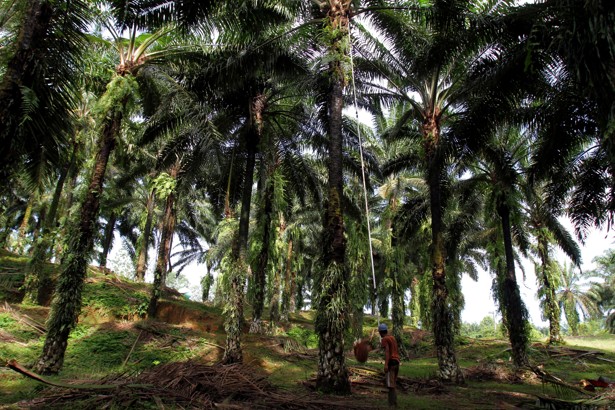
The museum sits on the grounds of Indonesia’s Palm Oil Research Institute, and there is a separate section in the compound dedicated to the evolution of the palm oil sector in Indonesia.
For Soedjai, the success of Deli tobacco on the world market is something for everyone to be proud of, including the Sultan of Deli.
(Nienhuys did not arrive in Deli by chance, but was lured there, according to local historians. “A Surabaya-based Arab, Syed Abdulla Bilsagih – the brother-in-law of the Sultan of Deli [Mahmud Al-Rasyid] – invited several Dutch merchants in Java in 1863 to plant tobacco in Deli,” writes Tangka Luckman Sinar in his book The History of Medan in the Golden Times. Nienhuys was the only one daring or desperate enough to take up Bilsagih’s offer.)
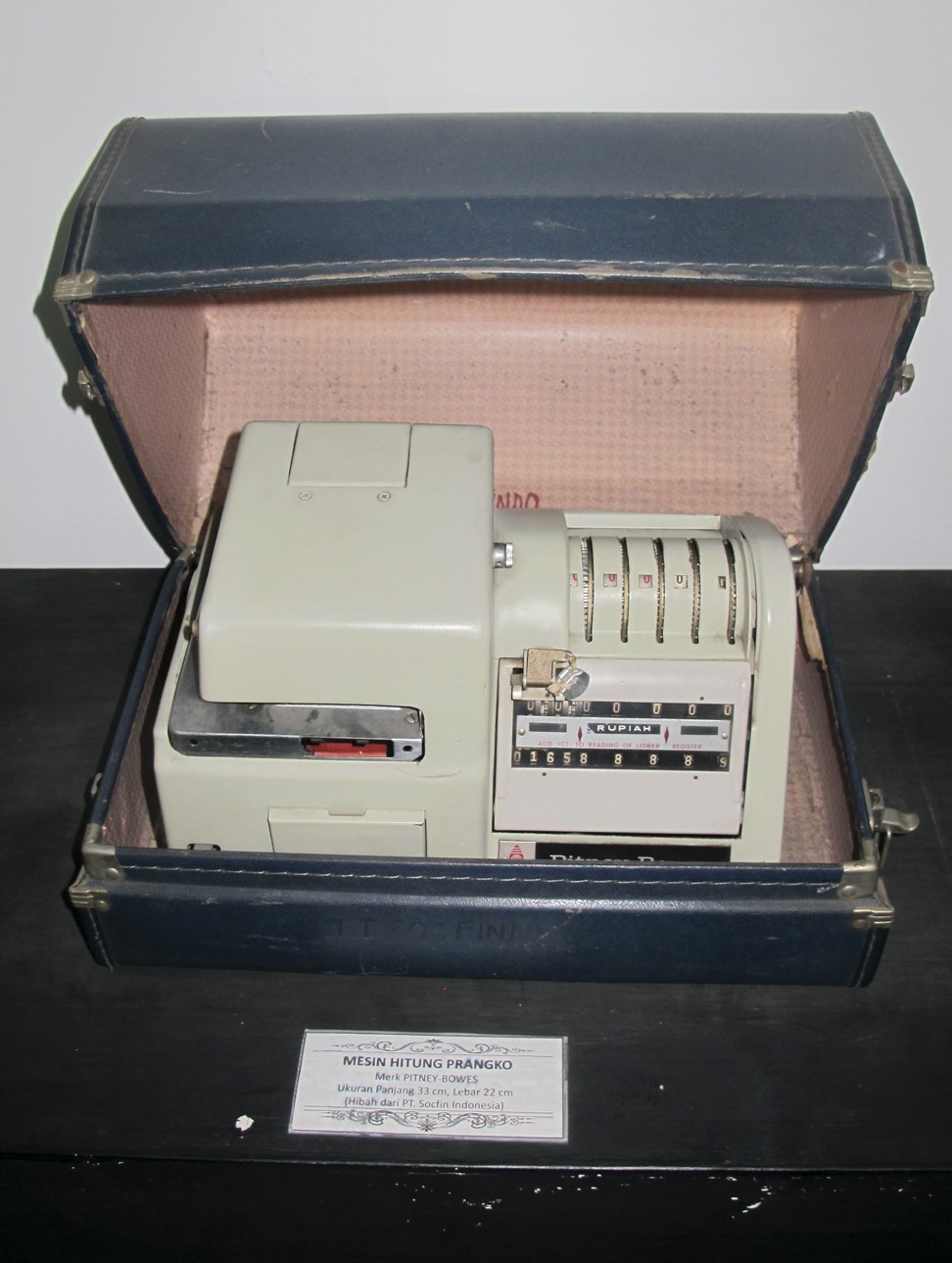
The success of Deli tobacco should also be a source of pride for the Indonesians who worked the plantations and took over management of them after the Dutch were expelled, Soedjai says.
“The museum is to show people that in the past we were doing well,” he says. “We used to be an example to the world for the best plantations because of our research and good management.”
An entire room at the museum is dedicated to Nienhuys as the founding father of Deli’s tobacco industry, but details about his and his successor as head of the Deli Company Jacob Theodoor Cremer’s treatment of plantation labourers have been tactfully left out.
The dogs fighting wild boars in illegal pits in Indonesia
Cremer would push through the notorious “Coolie Ordinance” in the Netherlands parliament. This allowed the plantations to enforce penal sanctions on their labourers in a system that was criticised in the early 1900s in Holland as a form of modern enslavement, earning Cremer the nickname “Coolie Cremer”.
“We have done our utmost to present the Dutch in a good light at the museum,” Soedjai says. “So I expect some donations from them,” he adds, with a laugh.
